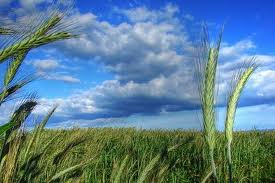 Representatives from the agriculture industry delivered a consistent and strong message Thursday during the United States Department of Agriculture’s 2012 Farm Bill hearing in Wichita — do not diminish the crop insurance program.
Representatives from the agriculture industry delivered a consistent and strong message Thursday during the United States Department of Agriculture’s 2012 Farm Bill hearing in Wichita — do not diminish the crop insurance program.
“Crop insurance is the most important foundation of a farmer’s safety net,” said Kenneth McCauley, a White Cloud farmer that represented the Kansas Corn Growers Association.
Thursday’s hearing, hosted by Sen. Debbie Stabenow, a Michigan Democrat and chairwoman of the Senate Agriculture Commission, and Sen. Pat Roberts, ranking committee member of the Senate Agriculture Commission, included testimony from not only Governor Sam Brownback but representatives from production agriculture, the banking industry, conservation programs and the food service industry. All briefed committee members on what farm programs most affect their industries.
“We’re here to talk about the next farm bill and how Kansas farmers, ranchers, agribusinesses and rural communities are impacted by policies created in Washington,” Roberts said during his opening comments. “Agriculture is the backbone of our state’s economy, providing roughly $15 billion worth of sales according to the most recent census by USDA.”
This is the second hearing aimed at collecting testimony and public input on the authoring of the 2012 farm bill. The first well held in Lansing, Mich. earlier this summer.
The makeup of the next farm bill will help to shape an industry that is vital to the continued growth of the state’s economy. But the bill will have to include the interests and concerns of farmers across the country, Roberts said, which is why it is important for Kansas producers to make a case for the programs that most benefit their operation.
“Farm bills are not designed with one state in mind,” Roberts said. “They are national in scope. Because of that, they must protect producers from all states at a base level.”
Those testifying Thursday largely devoted their time to describing what programs they feel are most essential to the future of their crop or segment of the industry.
The bottom line for most, crop insurance.
“As you look at priorities in this new farm bill, please consider that producers still need a safety net for crop failure and disaster,” said Lindsborg farmer and Kansas Sunflower Commission President Karl Esping. “Crop insurance has been and still is the best tool for these situations.”
And the case for crop insurance was not a hard one to make. Most of the farmers on the panel had or were in the process of collecting insurance payments on one or multiple 2011 crops due to either drought or flooding.
Ron Bach, director of High Plains Farm Credit in Jetmore, said the current high commodity prices should not be used as a case for cutting the crop insurance program.
“Do not let the high prices make safety nets unnecessary,” he said. “What goes up usually comes down.”
Roberts had said prior to the hearing Thursday that crop insurance would be on his list of programs that he would fight to keep in the next farm bill.
The belief among many producers is that the 2012 farm bill cannot and will not include funding for both crop insurance and direct payments. Many, believing crop insurance is the best form of disaster management, advocated for its inclusion without mentioning the need for direct payments. But a few producers noted the impact of the annual payments and their importance for producers during especially rough years.
“Direct payments also play a role on my farm, often filling in the gap between the level of risk management coverage I need compared to the level of coverage I can get,” said Greg Shelor, a Minneola farmer and representative of the Kansas Grain Sorghum Producers. “This is especially true in a year like this, where much of our state is suffering from varying levels of drought.”
Very few, however, ranked the payments as effective or as essential as multi-peril federal crop insurance.
“Direct payments are a little less effective and may not be all that effective for the taxpayer,” said Jeff Whitham, CEO and chairman of Western State Bank in Garden City.
Those not directly involved in production agriculture spoke in defense of other programs including conservation programs, young farmer and rancher lending programs, more dollars for research and development and fewer restrictions in the food service industry.
Ken Grecian, a Palco cattle owner that represented the Kansas Livestock Association, said he does not want to see a livestock title in the next farm bill.
“The cattle industry is best with free enterprise and free trade,” he said, adding that KLA strongly opposed the proposed GIPSA rule that if implemented could dramatically change the way cattle are purchased and marketed.
“We want to remain free of government interference,” he said.
Roberts, who has helped author several farm bills, said this will likely be the most difficult given the budget constraints in Washington.
The Senate Agriculture Committee, which authors the bill, will have a new challenge this year as it will not be a spending bill as it has in the past but a policy bill, Stabenow said.
The committee, between now as the middle of October, will be given a figure representing the money available for the 2012 farm bill. The committee’s recommendations will then be submitted to the super committee created by the deficit reduction plan approved earlier this month.
It is a new and somewhat confusing process for lawmakers and one that makes this bill unique from past pieces of legislation.

Deprecated: strpos(): Passing null to parameter #1 ($haystack) of type string is deprecated in /home/agriviek8Qv/agriviet.net/public_html/wp-includes/comment-template.php on line 2522